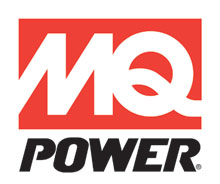Air Cooled vs. Liquid Cooled Generator: What You Should Know
- By Jackson Carter
- Jul 15, 2019
Buying a generator can be a difficult decision. There are so many options that a customer, especially a first-time buyer, may feel spoiled! Aside from the different types of fuel and engines, one of the most important factors to consider when buying a generator is cooling. Cooling is very important for a generator as it prevents overheating which is something no one wants. It is vital to know what type of generator you need, as it can mean the difference between spending too much money on an impressive liquid-cooled engine that you don’t need, or buying a cheaper, more suitable air-cooled engine that will meet your needs perfectly. Here’s a look at some of the differences and advantages of liquid and air-cooled engines for generators.
Uses
On the most fundamental level, air-cooled engines come with engines that use fans to force air across the engine in order to cool it. Many homes and appliances use air-cooled generators, as they tend to be a good value buy. They can still power a good deal of a house during a power outage, so they make ideal backup systems. They can also be used as the main generator if whatever application they are generating for isn’t too large or demanding, as a generator with an air-cooled engine are generally used for smaller jobs and shorter periods of time. They are perfect for any non-industrial or undemanding work.
On the other hand, water-cooled engines contain enclosed radiator systems for cooling. This system of engine cooling is like that found in many automobiles. Liquid-cooled engines tend to be used in higher-kilowatt generators, as larger engines are required for higher power output levels and to reduce the amount of heat created due to larger engines. As can be expected, the larger the engine, the more it will take to cool it down.
Larger homes can make good use of the increased horsepower of these automobile-style liquid-cooled engines. Other common users of these engines include convenience stores, restaurants, offices and more industrial, large scale buildings and applications. Always consider what application you are planning on using the generators for, as that can change how much you may end up spending. You don’t want to spend more money on a liquid generator only to find out that an air-cooled generator would have worked just fine. At the same time, you don’t want to buy a cheaper air-cooled generator, only to discover that you need a more expensive liquid-cooled generator for a larger power output.
Maintenance
Air-cooled generators tend to be easier when considering maintenance. Without the complex workings of an automobile-style liquid-cooled engine, and without as much mess generated by the cooling process, the air-cooling process is an easy one to look after. Keep in mind that there is maintenance involved with an air-cooled generator, but when compared to a liquid-cooled generator, it's much simpler and tends to take less time when compared to a liquid-cooled engine – a valuable thing for someone operating a business or store. All you must do is check the oil levels every now and then, and make sure the generator's batteries have voltage and that everything is functioning properly. This is incredibly simple and time saving, which is something every workplace wants, as time is money.
The cooling processes of a liquid-cooled engine on a generator, however, is a bit more sophisticated, and as such requires some monitoring by the generator’s owner. Besides checking the antifreeze levels, you must make sure the cooling liquid is running properly, which may mean checking lines and connections, as well as checking for potential leaks. The maintenance on a liquid-cooled engine is also much more frequent, as it's important to stay on top of any potential problems. This may be a disadvantage to some people, but for the effectiveness and power of a liquid-cooled engine, the extra maintenance is worth it. Maintenance kits are readily available for these generator types and should be employed at regular intervals.
Noise
Air-cooled engines do produce a fair deal of noise, as the fan can be heard blowing air across the engine. Also, due to the need of air flow in order to keep the engine cool, there is no ability to utilize attenuated enclosures to further reduce engine noise. This can be an annoyance for some people, especially if the air-cooled engine is being used full time to power a house. If the generator is being used as a backup, it shouldn’t be as much of an issue. It is something to be aware of however, as noise is something a lot of people dislike about a generator. Another consideration are the requirements your homeowner's association or residential area might have for noise levels.
Liquid-cooled engines, on the other hand, are very quiet when compared to an air-cooled generator, as the sound created by them can be contained within the attenuated enclosures. This is often a very appealing factor for a lot of people, but price and overall need should be met before comfort and preference.
Requirements
Air-cooled engines are usually used for power levels between 8 and 20 kilowatts. In other words, smaller jobs that require less power. Water-cooled engines predominate the market for generators ranging from 25 to 60 kilowatts, meaning larger, often more industrial jobs that require a lot more power, and as such, put more stress on the engine. Which type is best suited for your needs will largely depend on how much power you are looking for. If you are on the fence about which type of engine you need for your generator needs and how much stress will be placed on it, feel free to contact our Application Specialists, so that they can help you find the perfect generator for your application.
At Absolute Generators, we are prepared to meet all of your generator needs. We offer free shipping, no tax in most states, and a low-price match system to ensure you are getting the best buy with us. Visit us today online!







